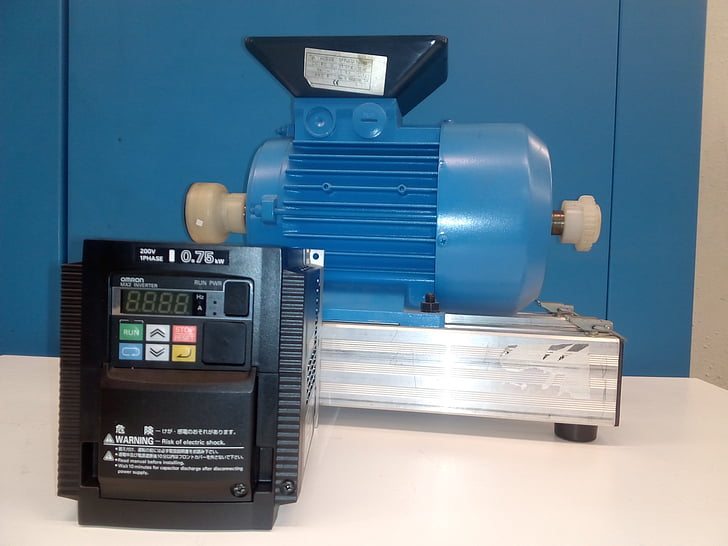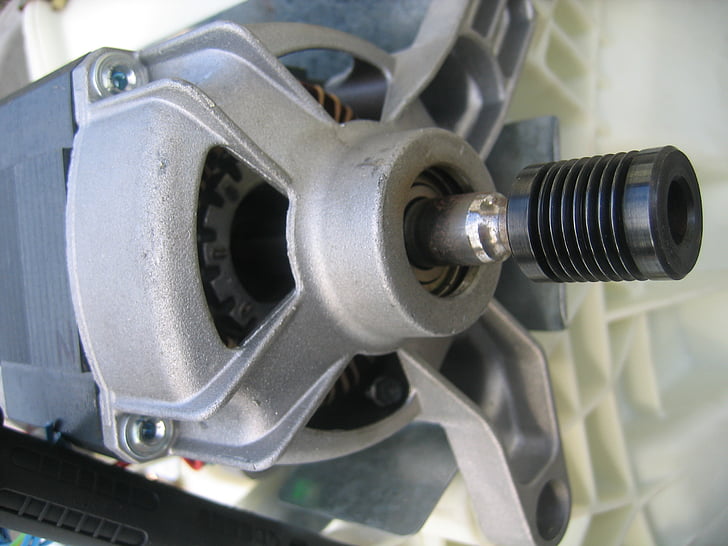PMSM plays a vital role in industrial automation. Electrical motors are the main contributor to industrial automation. Amongst all types of motors, Permanent Magnet Synchronous Motors have become a crucial factor in enhancing the efficiency and precision of automated industrial processes. With their superior performance, PMSMs have gained their place in a wide range of industrial applications, assuring better performance than conventional induction motors. It would explain in itself the importance of PMSMs, how these motors are changing the face of industrial automation, paving the way to ensure further productivity and innovations within manufacturing and industrial operations.

Advantages of PMSM
PMSMs came into play and brought an industrial revolution in automation due to their range of advantages over induction motors. Advantages of Permanent Magnet Synchronous Motors made it gain popularity in Industry. Let’s have a look at some important advantages of the PMSM, that really brought a new trend into the industry of industrial automation.
High efficiency:
PMSMs are much more efficient when compared to conventional motors. The magnetic field in the rotor is provided by permanent magnets in PMSMs. Therefore, there is no need to use slip rings and brushes, which usually bring in energy losses and maintenance troubles. Besides, a higher power factor of PMSM reduces the consumption of reactive power and promotes better efficiency in the consumption of electricity. The high efficiency of PMSM reduces the operating costs and environmental impact, thereby making them suitable for any environmentally friendly and sustainable process in industry.
Fast Response Time:
The most remarkable advantages of PMSMs are in their fast response time. This response time is fast for every sudden variation in load and speed, for which these motors are best suited in applications that require high precision with quick changes. Given the quick response time, the PMSM has the capabilities of very high accuracy with consistent performance for a range of applications in industry-from CNC machine tools and servo systems.
Higher control accuracy:
PMSMs have higher control accuracy compared to other motors. Permanent magnets allow for more precise control of the rotor position and speed, which in turn results in better speed regulation and torque control. High control accuracy improves system accuracy, enhances product quality, and reduces waste in the manufacturing process. Precise control of PMSMs can make complex and sophisticated automation systems, which increase the efficiency and productivity of industrial operations as a whole.
High Torque Density:
PMSMs exhibit high torque density, hence yielding high torque output in relatively small-sized motors. Small size makes PMSMs suitable for space-limited applications where the design for compact and more effective machinery is possible. High torque density also indicates that PMSMs can operate under heavy loads at high speeds, hence their appropriateness in applications such as pumps, compressors, and conveying systems. Another major fact is that PMSMs can bear heavy loads with a high torque density and velocity, hence their applications also include systems such as pumping, compressors, and conveyance.
Higher reliability:
PMSMs have higher reliability as compared to induction motors. Due to the absence of brushes and slip rings, there is less mechanical wear on a PMSM. Hence, motor life is prolonged and maintenance costs reduced. Apart from that, PMSMs are less prone to overheating, one of the common reasons for motor failure, and are also resistant to shock and vibration. As a result, they will be perfect in extreme environments and heavy-duty industrial applications.
Low noise and vibration:
PMSM motors have lower noise and vibration, hence providing a noiseless and comfortable working environment for operators. Smoothening by PMSMs reduces the possibilities of damage to machinery and equipment due to noise pollution and vibration, improving the general safety and quality of industrial processes.

Applications of PMSM in Industrial Automation
PMSM finds its popularity in industrial automation because of its excellent features. Applications of PMSM in industrial automation include:
Manufacturing
The manufacturing industry uses a wide variety of machinery and equipment that require precise control and efficient operation. pmsms are used in a wide range of manufacturing applications such as machine tools and conveyor belts. the precise control and high dynamic response of pms enable these machines to operate accurately and consistently, resulting in increased productivity and reduced downtime. Due to the higher power density, pms can be designed as compact and light machines to save material and reduce manufacturing cost. In addition, pms can be applied in printing presses, textile machinery, and other applications where the use of pms is crucial. Printing presses, textile machinery and other applications with low speed, high precision of speed, smooth operation can also be equipped with PMSMs.
Pumping and Compression Systems
Pumping and compression systems are widely applied in industrial processes, including water treatment, oil and gas, and chemical manufacturing, due to the application of PMSMs because of their superior power density, high efficiency, and precise control. Efficient running of PMSMs means pumping and compression systems use less energy, therefore economizing on energy consumption and being more sustainable. With the high dynamic response and precise control of PMSMs, the flow and pressure are controlled very precisely and constantly. Precise and constant regulation of flow and pressure by a PMSM allows increasing the efficiency of the process and reducing downtime.
Rubber Industry
The PMSM finds its application in the rubber industry for various vital processes like compounding, extrusion, and molding. PMSM is suitable for driving the mixing equipment in rubber compounding because it has a high torque capability and precision control. By this process, the additives and fillers are mixed properly with the rubber compound. Since the PMSM has high dynamic response, the speed can be controlled precisely to maintain uniformity in mixing that will result in better quality products. PMSM is also utilized in extruders to extrude the rubber material to a profile or cross-sectional shape of a particular type. Besides, in the extruders, PMSM can be installed for the extrusion of rubber materials to a particular profile or cross-section. The high efficiency and precision of operation by the PMSM mean consistent extrusion of the rubber compound for maintaining constant product dimensions, hence increasing productivity.
Conclusion
In short, the PMSM guarantee enormous advantages in industrial automation processes within a wide circle of industries. High efficiency and the possibility of very exact control, along with power density, have revolutionized manufacturing, pumping, and compression systems, and the rubber industry.
Increased productivity, energy efficiency, reduction of downtime, improved product quality, and enhanced indoor air quality and comfort have resulted from the adoption of PMSMs. The compact light construction of PMSMs has saved money by reducing the size of the material used, whereas their wider speed range maximized the energy output in renewable applications.
With the increased emphasis on sustainability and energy efficiency within industries, PMSMs will continue to drive innovation in industrial automation. Ongoing research and development are further expanding the application envelope of PMSMs, and their impact on modern industry cannot be overemphasized.
Overall, PMSMs have turned out to be an irreplaceable driver of industrial automation efficiency and sustainability, thus contributing to a better, greener world. In addition, their benefits will create further progress in industrial automation and lay the foundation for a more sustainable future.